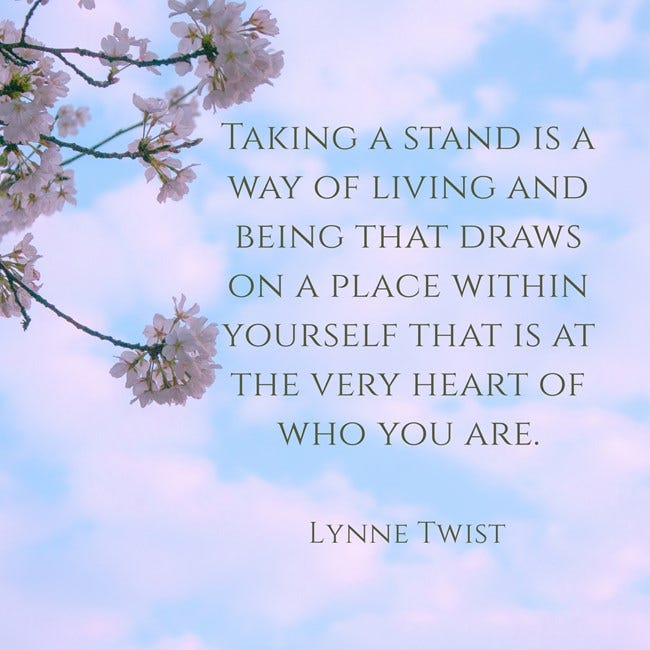What will you take a stand for?
Taking a stand may sound naive or even esoteric until you feel its power.
This week, I started a two-year meditation teacher training course.
When Emily Horn reached out last year inviting me to join the next meditation teacher training course that she’s running together with her husband and a fellow meditation teacher, Vince, my immediate impulse was to say “Yes!” but I hesitated.
First of all, who am I to teach meditation to anyone? It’s not like I’m an accomplished Zen master with years of meditation practice under his belt who hangs out in nirvana daily. I’m just someone who made meditation part of his life.
Second, I don’t have any intention to teach meditation. Others could do it better than I. I’m just a practitioner. Plus, I’ve plenty of other plans, starting with continuing my career as a coach.
Yet, the sense that this was the right thing to do wouldn’t go away. Reflecting on it, I remembered what I learned from Steve March about taking a stand. Steve taught me:
You take a stand based on nothing. No reasons. No justifications. No explanations. No proof. No evidence. And any justification you offer, diminishes the power of your stand.
In life, we need to take a stand indeed. Sometimes, we can clearly see that we are doing one thing because of another thing. This is not taking a stand.

Taking a stand is about asserting who you are. This doesn’t require an explanation or justification. Indeed, trying to justify who you are diminishes the power of the stand you take.
Deciding to join the meditation teacher training programme and acknowledging my own longing to do so was my way of taking a stand for who I am and what matters to me.
For me, practising meditation means taking a stand for freedom. When I started meditating many years ago, I wanted to be free from the stress of running a startup. Soon enough, I learned that stress reduction is a by-product of learning to meditate, but that is not the point. There is far more at stake than just being less stressed.
What’s at stake is freedom from my own mind with its ideas of how things should be. Freedom from suffering inherent in resistance to pain. Freedom from being attached to anything at all. Meditation — practising or learning how to teach it — is my way of taking a stand for this freedom.
What are you willing to take a stand for?
As a coach, I work with founders with big dreams and ambitious goals. I have nothing against that. But coaching session after coaching session, I keep nudging founders to lean into who they are, feel into what deeply matters to them and what they are willing to take a stand for.
Things shift when we connect to our own sense of who we are and what deeply matters to us. Sometimes, we decide that old goals are no longer relevant. Sometimes, we discover a previously hidden energy source and a new perspective that allows us to see a new way to reach those goals.
What are you willing to take a stand for? Remember that a stand doesn’t require a justification. You don’t take a stand based on circumstances. It’s the opposite: choosing to take a stand changes the circumstances. It changes how you show up, what you choose to pay attention to and what people you attract.
Think about a person you admire. Whoever they are, the chances are that they took a stand for something. Taking a stand shaped the rest of their life and maybe even propelled them to greatness.
You don’t take a stand by thinking rationally about whether it makes more sense to take a stand for this or that. You do it by listening deeply to who you already are and what matters greatly to you. By taking a stand, you commit to being a certain way. By taking a stand, you connect to a power far greater than what you can invoke through willpower.
So, what are you willing to take a stand for?


So beautifully written, Evgeny, and a powerful reminder to all of us. Thank you for sharing it!
Love this post Evgeny, very powerful way to look at it.